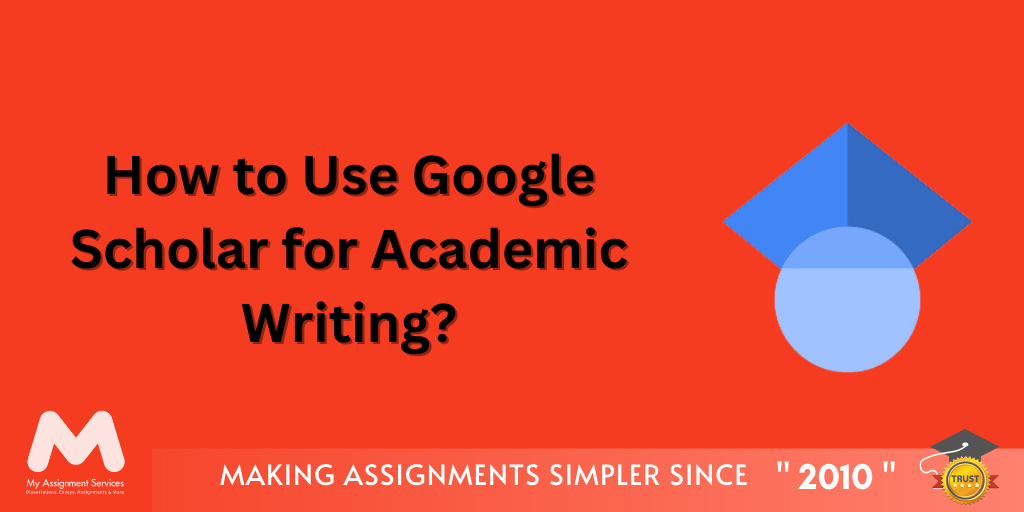
If we talk about Google Scholar then it's one of the most well-known tools for academic papers and scholarly research. Whether you are a student or a researcher, or simply anybody interested in academic articles, learning how to use Google Scholar makes your research experience more effective. This blog is all required to understand what Google Scholar is, how to use it, and how to locate peer-reviewed articles.
What is Google Scholar?
It is a free web search engine that indexes metadata or full text in various publishing formats of scholarly literature across different academic fields. The service was launched in November 2004 by Google and since then has reached a milestone for researchers around the globe.
Key Features of Google Scholar
Broad Coverage
Google Scholar encompasses many academic fields and sources, including articles, theses, books, conference papers, and patents.
Easy Access
It allows access to journals and articles of a scholarly nature from diverse online databases, publishers, universities, and other websites.
Citation tracking
This feature allows a user to trace a research paper and obtain the number of times it has been cited, providing a measure of its impact and relevance.
Personal Library
The individual user can save articles to their library for easy access later.
Is Google Scholar a Database?
That is the question that numerous users pose. If you look at the technicality, Google Scholar is not a database such as PubMed or JSTOR. Instead, it is a search engine combining various scholarly material sources. In this sense, it is almost like an academic search engine from Google. It does not provide the articles on its own, but it provides links to the location of the articles, and, in most cases, links will point to the publisher's sites or the institutional repositories.
How can Google Scholar be Beneficial for Assignment Purposes?
1. Reliable Sources Access
It is a treasure trove of academic articles, papers, and research from around the world. It is like having a library just in one's hands, only that it doesn't go by flipping pages of some dusty old books but by typing one's topic into the box, and lo and behold, here come all the studies regarding one's subject. This way, you manage to get your way to reliable sources without having to wade through many web pages while being concerned as to whether the information is trustworthy or not.
2. Saves Time and Effort
You will not have to spend all the hours trying to find sources. The advanced search features of Google Scholar will allow you to filter results by date, author, and even particular journals. It will save you time and effort and give you more energy to focus on understanding the material and crafting your assignment.
3. Stay Updated
The most remarkable thing about Google Scholar is that it uptakes new research all the time. This means you can easily keep updated on the latest findings and trends in the area. These documents can significantly improve the quality of your work through access to current information, whether you are writing a paper on climate change or psychology.
4. Citation Help
This is where most of the headache in academic writing comes from: proper citation of your sources. Luckily for you, Google Scholar helps you with that, too! It cites the source for you—automatically—in almost any style you want, like MLA, APA, or Chicago, and can be an easy way to credit your source and help you avoid plagiarism.
5. Look for Related Literature
Sometimes, the most significant insights come from scouring related research. Google Scholar makes it easy to provide insight by offering suggestions on related articles and studies that increase the level of your subject, making it more detailed and with a new dimension that you can add to or develop in the assignment.
In essence, Google Scholar is a mighty tool that you have. It will help you to synthesise your sources and make relevantly sound inferences as one way of improving the quality of your assignment. Next time you are working on your project, do not forget to try it !
Is Google Scholar Peer-Reviewed?
This question is asked many times by many people. It is not the case that Google Scholar itself peer reviews the articles. It takes an indexation of content from all sorts of sources, with some sources including peer-reviewed matter and others not. In this regard, a person may not be sure whether the article's source has been peer-reviewed.
How can you find on Google Scholar about Peer-Reviewed Articles?
Wondering how to find peer reviewed articles on google scholar? It takes some extra steps to find peer-reviewed articles on Google Scholar because the database includes both peer-reviewed and non-peer-reviewed versions. Here are a few tips:
Check the Source
Go to the journal or conference where the article was published. Reputable academic journals and conferences peer-review their content.
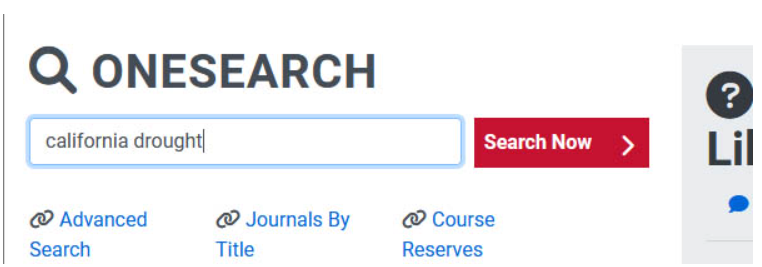
Use Keywords
Use terms like "peer-reviewed" within your search queries.
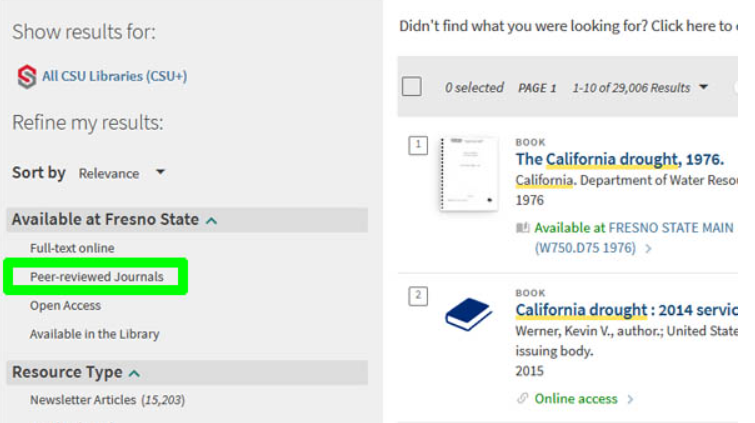
Library Links
Configure the library links in Google Scholar to automatically link to the complete articles available through your library subscriptions. Some of the most common subscriptions include peer-reviewed journals.

How to Use Google Scholar?
Google Scholar is a user-friendly tool, but here are some tips to make it work at its best:
- General Search
- Enter Your Search Term
- Enter key terms for your topic in the search box.
- Review Results
- Look at the retrieved articles, books, and other scholarly content.
- Full-Text Access
- Click the URLs below for full-text articles, if available. Some articles may not be accessible.
Advanced Search
For more accurate results, try the advanced search:
Click on the Menu
Select "Advanced search" from the menu icon on the Google Scholar homepage.

Define with criteria
Type in specific details such as the name of the author, date, publication, and preferred phrases so as to decide on the search parameters.
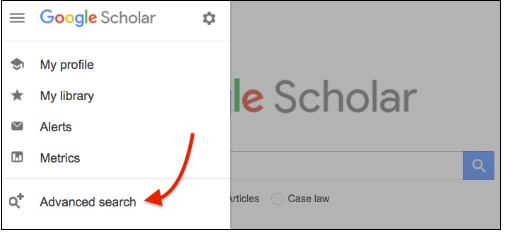
Use Boolean Operators
Use AND, OR, and NOT to connect or exclude specific terms to get more targeted search results.
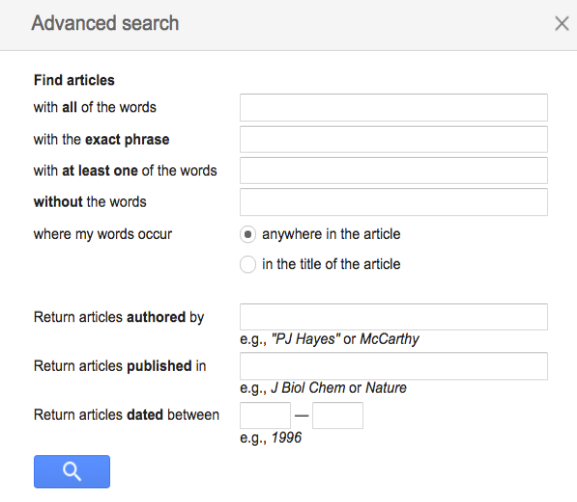
Setting Up Alerts
You can Stay Updated by Configuring New Research Alerts
Create an Alert
Click on the envelope icon at the top of this results page.

Get alerts
Email alerts arrive with your search query whenever new articles are added to Google Scholar.
Using Citations
Follow these steps to track and manage your citations:
Cited by
Click on the "Cited by" link below a work to see other works that have mentioned that work.
Save Citations
The "Save" button allows you to put articles in your library.
Export Citations
Use the quotation mark icon to export citations in various styles, including MLA, APA, and Chicago.
Setting Up Library Links
Gain access to full text of articles at your institution:
Access Settings
Tap the icon for the menu and click "Settings."
Library Links
Choose "Library links" and search for your institution.
Now, do this for your institution by clicking "Save." This setting is going to link up Google Scholar to your library resources.

Are All Articles on Google Scholar Peer-Reviewed?
However, I'd like to inform you that many of the articles found on Google Scholar are not peer-reviewed. Even though Its indexes most scholarly sources, it does not classify between non-peer-reviewed and peer-reviewed articles. To determine whether an article was a product of peer review, the user would have to check the source of publication.
Practical Applications of Google Scholar
1. For Learners
Research Papers
Easily discover scientific articles to validate your research.
Cite
Use the citation tool on Google Scholar to list the references correctly.
Study Material
Access much scholarly course material to help you.
2. Researchers
Literature Review
Conduct in-depth literature reviews by discovering relevant literature in broad areas.
Track Citations
Watch for the times your work is cited and by whom.
Stay informed with up-to-date research in your field by setting up alerts.
3. Educators Course Material
Find scholarly articles and include them in course readings.
4. Research Guidance
Assist students in locating appropriate scholarly sources.
5. Professional Development
Stay updated on the latest research and development in your field.
Comparison Table of googleScholar and other similar tools
|
Feature |
Google Scholar |
Microsoft Academic |
Semantic Scholar |
Unriddle.Ai |
|
Search Coverage |
Extensive coverage of relevant academic literature from various disciplines |
Focusing on computer science, physical, and biological sciences |
Includes biomedical and computer science literature |
Broad coverage of academic literature across disciplines |
|
Search Quality |
Gives relevant and quality searching results |
Provides advanced search and semantic search |
Utilises algorithms powered by artificial intelligence to provide relevant and high-quality results |
Uses the AI-powered research assistant to derive personalised and prospective results |
|
Comprehension Support |
Limited tools for reading comprehension and research workflow |
No specific features for reading comprehension support |
Provides tools for annotation, summarisation, and citation management |
Offers AI-powered tools for reading comprehension, summarisation, and research workflow |
|
Accessibility |
Free and widely used by researchers |
No cost to use for academic purposes |
Free to use for academic purposes |
Offers both free and paid plans with varying features |
|
Scholarly Impact Evaluation |
Widely used for evaluating scholarly impact and publications |
Not primarily focused on scholarly impact evaluation |
Can provide insights on research trends and impact |
Provides AI-powered analysis of scholarly impact and research trends |
Conclusion
Google Scholar is one of the most essential tools for anyone with something academic to research. This comprises an extensive database of scholarly articles, an amiable interface, and exceptional search capabilities, making it an indispensable tool for all students, researchers, and educators. It would put one on the right path to raise his research abilities by a few notches, with much knowledge open to him upon further concurrence in the practical usage of Google Scholar.
Ready to up your research game? Start using Google Scholar today and see all that awaits you for professional and academic advancement.
Get Expert Assistance to Make Your Assignments Stand Out!
My Assignment Services is introducing you to all the top tools which can make your academic life easier and help you get the grades you desire. Through our blogs, you will get detailed instructions on how you can make the most of these tools. If you want to stay on the top of the competitions, stay connected with us! Get in touch with our academic experts now!
Frequently Asked Question (FAQs)
Is Google Scholar a database?
No, Google Scholar is a search engine that indexes scholarly content from multiple sources, not a database.
How is Google Scholar different from a regular Google search?
It searches for specialized academic literature: scientific articles, conference reports, dissertations, books, etc. It also covers a whole stack of scientific disciplines, while the search tool Google is a generic tool for a far more extended scope of network resources.
Is Google Scholar peer-reviewed?
Not all the articles are peer-reviewed articles. It indexes both peer-reviewed and non-peer-reviewed content.
What type of information can anyone find at Google Scholar?
This includes peer-reviewed journal articles, conference proceedings, theses, dissertations, preprints, and sometimes so-called "gray" literature, as well as specific books and book chapters, in addition to even stretching the horizon farther. This covers a vast area of academic fields—from sciences and technologies to humanities and social sciences.
How can I find peer-reviewed articles on Google Scholar?
To find peer-reviewed articles, check the source of the publication, use specific keywords, and set up library links for access to peer-reviewed journals.
Related Study Materials
Our Experts can answer your Assignment questions instantly.
Ask Question0 Comment
Get Quote in 5 Minutes*
1,212,718Orders
4.9/5Rating
5,063Experts








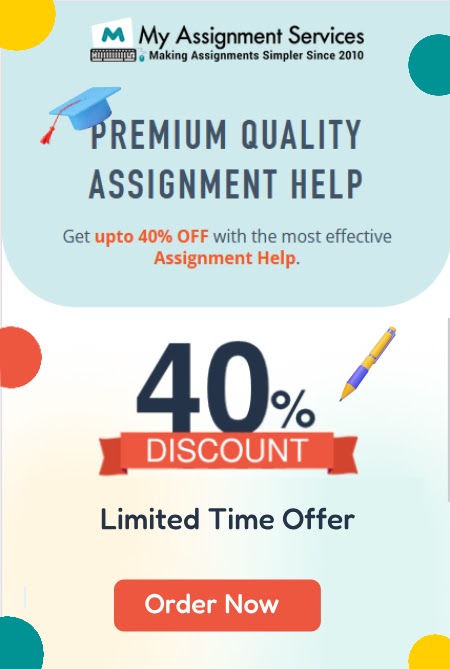




Loved reading this Blog? Share your valuable thoughts in the comment section.
Add comment